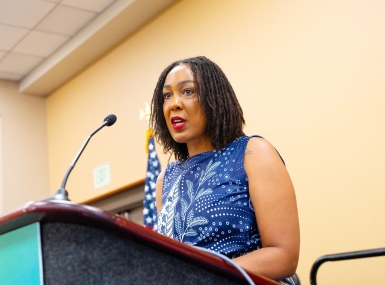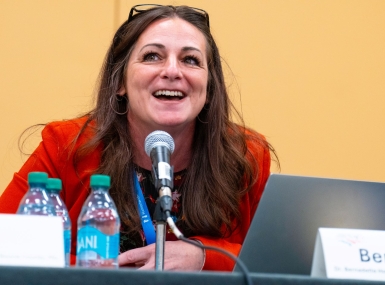HHS moves to reduce public comment in rulemaking
Author

Blaire Bryant

Naomi Freel

Julia Cortina
Upcoming Events
Related News

Key Takeaways
On February 28, the U.S. Department of Health and Human Services (HHS) announced a policy change limiting public comment opportunities to only those required by law. Published in the Federal Register on March 3, the decision rescinds the “Richardson Waiver,” a 1971 directive from then-HHS Secretary Elliot Richardson that encouraged broader public input on regulations related to public benefits, grants and healthcare policies.
For more than five decades, this practice ensured that HHS sought public comments even when not strictly mandated by law. Under Secretary Robert Kennedy, Jr., the department has revoked this practice, citing the need to streamline operations and reduce administrative burdens, allowing for more efficient responses to legal and policy changes.
While HHS will continue to follow all legally required notice and comment procedures under the Administrative Procedure Act (P.L. 79-404), this change likely reduces additional opportunities for stakeholders to weigh in before rules are finalized. The policy statement does clarify that offices and agencies “have discretion to apply notice and comment procedures to these matters but are not required to do so, except as otherwise required by law,” meaning public comment is not entirely eliminated but will now be at each agency’s discretion. Agencies were recommended to avoid public comment in appropriate circumstances.
Impact on counties
Counties are key partners in administering many HHS-funded programs and must operate under the rules and requirements the department establishes to guide them, including Medicaid, public health initiatives and behavioral health services. Changes to the public comment process could have several implications for county governments and their residents:
- Policy implementation and planning: Public comment periods provide counties with insight into upcoming regulatory changes, allowing time to plan accordingly. With fewer opportunities for early engagement, counties may have less time to adapt to new policies affecting healthcare and social services.
- Ensuring county voices are heard: County governments and NACo frequently use public comment processes to highlight potential local challenges and propose solutions. While HHS will still gather feedback where legally required, counties may need to explore alternative ways to communicate our perspectives on policy changes.
- Regulatory certainty: By simplifying the rulemaking process, HHS aims to enhance efficiency. However, this also leads to concerns regarding the reduced transparency and the potential for unintended consequences without broader stakeholder engagement.
Looking Ahead
As HHS shifts its approach to public comments, counties must stay informed and engaged in the rulemaking process. NACo will continue to use every resource at our disposal to advocate for county voices and resident needs, ensuring that we are heard both within the Administration and in Congress. We remain committed to protecting county interests and ensuring federal policies reflect the realities on the ground in communities nationwide.
Related News

Engaging people with ‘lived experience’ helps build substance use disorder programming
Philadelphia’s Keli McLoyd noted to NACo's Health Steering Committee that increased harm reduction initiatives have led to fewer drug overdose deaths.

County officials shed light on childhood education and care
Inadequate childcare causes American workers to lose between 9 million and 26 million hours of work in any given week and has a negative impact on children’s development.

Counties can help troubled youth thrive
Combatting crime among youth means providing them with enriched education environments and mentorships, access to green spaces and opportunities for social connection and skill strengthening according to Bernadette Hohl, from the Philadelphia Department of Public Health.